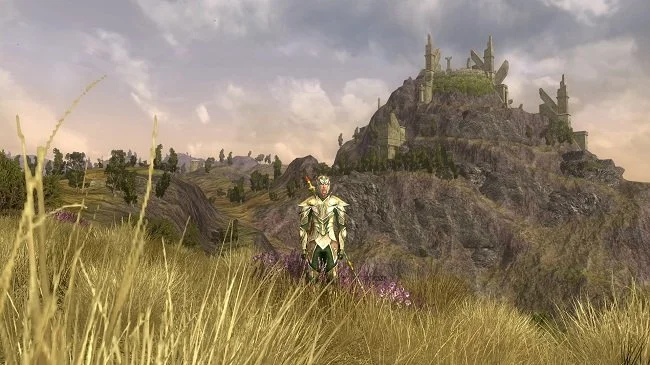So Many MMORPGs, So Little Choice
I recently considered whether or not I should find a new MMORPG to play. A cursory Google search showed that there were plenty of titles that I have not tried. Unfortunately, they are predominantly fantasy based games drawing upon the established tropes and themes of the dungeons and dragons genre and the wider sword and sorcery literature. This begs the question “why aren’t there more science fiction or non-fantasy based MMOs?” apart from the handful that currently exist? After a little research and a degree of thinking it becomes very apparent that the answer to this question is mainly a business decision made by publishers. Furthermore, that business decision is based upon several specific factors. All of which cumulatively tip the scales towards fantasy, rather than science fiction or some other complex but non fantasy based franchise.
First off, let’s address the biggest factor. Fantasy is a much bigger and more popular genre, compared to science fiction. This is mainly due to the barriers to entry being relatively low. Its tropes are straightforward and recognisable. Hence, it is theoretically easier to create a fantasy themed MMORPG than a science fiction one. By this I mean, the world, the game mechanics, the assets and the underpinning narrative. Fantasy does not have to try as hard as science fiction to justify itself. Exotic skills and powers can simply be labelled “magic” and players won’t necessarily kick up a stink about their provenance or credibility. An original fantasy themed intellectual property doesn’t have to work within so many rules as an existing science fiction property that has an excess of lore. Fantasy is a self plagiarising genre by default and players are relatively comfortable with this concept. It’s essentially priced in.
From a writing perspective, a science fiction MMORPG is a potentially more complex proposition. Storylines need to be driven by a suitably plausible McGuffin or underpinned by complex lore. This impacts on game design making the final product more complex. A science fiction based game may not be limited to a single environment or world. There may be the need for multiple types of travel mechanics and therefore multiple types of combat. This complexity both in design and narrative may create a higher barrier to player entry. All of which makes such a game a far more niche market proposition. Which is why you’re more likely to find a fantasy MMORPG with science fiction elements blended into it. Consider the Asura in Guild Wars 2. Also, is Star Wars a pure science fiction franchise? No. This is by far the most common compromise that will happen.
However, possibly the biggest issue that prevents the development of a major science fiction themed MMORPG is copyright. If you wish to draw upon or specifically base your game upon an existing intellectual property, then there will be licensing costs. Often these can be complex and expensive. Furthermore, rights can change hands overtime and a game that has existed for a while and made a profit can subsequently find itself cut off at the knees, purely due to the withdrawal of a licence. This raises the question of why bother taking a risk with such material when you can create your own franchise based on an original IP. However, fans can be funny about such workarounds and particularly unforgiving when a game proves to be a pallid imitation of something they hold dear.
Despite these considerations, the video games industry is not totally averse to science fiction based MMORPGs. Star Trek Online has endured with a degree of success for 14 years, although its future is not looking especially good at present. I think the unique nature of the IP and the loyalty of its fanbase is the main reason that it was originally created and has survived so long. EVE Online is another perfect storm of a game. One whose success cannot easily be duplicated. As for Star Citizen, the jury is still out until we get something approaching a fully fleshed out game. Simply put, the video game industry is just like any other leisure business. Trends are followed, risk is eschewed and decisions are often dictated by the bottom line. Although I would love to see a radical, hard science fiction game based on the works of Arthur C Clarke or Isaac Asimov, it is highly unlikely that any major triple A studio would undertake such a project. They’d be too worried about sufficient return on investment. Cue “and this is why we can’t have nice things”.






























